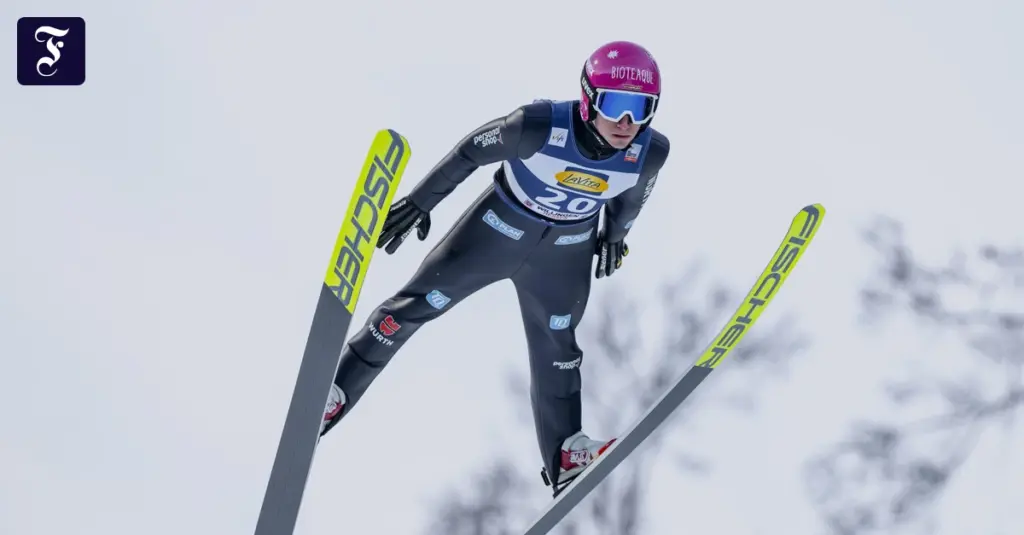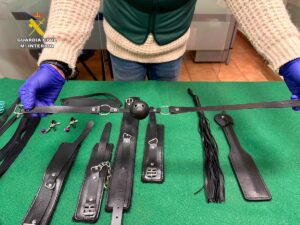
Ski jumping is a sometimes mysterious sport. This has long been scientifically proven; the feeling of flight and material coordination were developed in the wind tunnel and tested in practice with jumping mats in the summer. But tinkering doesn’t always pay off; Sometimes this only adds to feelings of insecurity, as experienced by world-class athlete from Germany, Andreas Wellinger, last weekend.
In Saturday’s World Cup opener in Lillehammer, he missed qualifying for the competition for 50 starters, and on Sunday he did not make it through to the second round. He was currently jumping “like a dead bird”, without any sense of calm or confidence, Wellinger said and appeared confused. Teammate Felix Hoffmann, 28, even finished in third place on Sunday. The two then seemed a bit inexplicable.
Wellinger announced before the competition in Lillehammer that he was still working on his setup and did not expect top spot. But he didn’t expect that he would be left behind so far. In contrast, Thuringian Hoffmann, previously a commuter between the B and A teams, impressed not only his coaches but also himself. On Saturday he placed third after the first run, but missed his second jump. He still achieved tenth place, his best result in a World Cup to date.
“He can compete with the best”
On Sunday, Hoffman performed consistently strong twice and finished on the podium for the first time in his World Cup career. Only Japan’s Ryōyū Kobayashi and Slovenia’s Domen Prevc, two of their sport’s leading lights, did slightly better. This shows how good Hoffmann’s flight system was at this time. National coach Stefan Horngacher said: “Felix has to get used to the fact that he can compete with the best.”
Hoffmann was hired by the federal police and joined a club called the Goldlauter-Heidersbach Ski and Climbing Club, a district of Suhl in Thuringia. Between 2017 and 2024, he won five events in the Continental Cup, the second league for ski jumping. In 2023, 2024 and 2025 he finished 70th, 46th and 50th in the World Cup; However, he was rarely used in this series because other German jumpers were always better than him.
Between August and October, Hoffmann was able to impress with top ten results in the Summer Grand Prix series. At the end of October he even won the German championship title at Oberhof ahead of Philipp Raimund, who finished fourth on Sunday. “That was his breakthrough in the team,” Horst Hüttel, director of ski jumping and Nordic combined at the German Ski Association, said of Hoffmann.
Hoffmann had discovered a new feeling in flying
He achieved his international breakthrough thanks to new regulations from the world Fis association. Hoffmann benefited from suit reform. The suits are now cut tighter than before, FIS wanting to minimize the seamy effect of the material. As a result, all ski jumpers have had to adapt to the new feeling of flying. Wellinger is still looking for it, Hoffmann and Raimund, who shared a room in Lillehammer, have clearly found it.
The less surface area the suit offers, the better the jump must be to land at the top. Hoffmann and Raimund were among the best ski jumpers on the German team in this category. The great thing about this sport is that “you can still make breakthroughs at 28 years old,” Hüttel said. A year ago, Pius Paschke, who was then 34 years old, suddenly achieved five wins at the World Cup.
The fact that he will shine as Germany’s best jumper on Sunday leaves Hoffmann almost speechless. Although he “didn’t talk much and if he did, you would have asked him something beforehand,” said Lillehammer teammate Karl Geiger. But Hoffmann smiled more, a trait his fans also noticed. In the spring at the World Cup in Willingen there was a sign where he was greeted as “Grinsebacke”.
It was clear during practice and qualifying that he had just made a big jump, Hoffmann said. “But the fact is that I was able to show that in competition it happens very quickly.” Overall, he sees his rise as “a surprise, but a good jump.”




